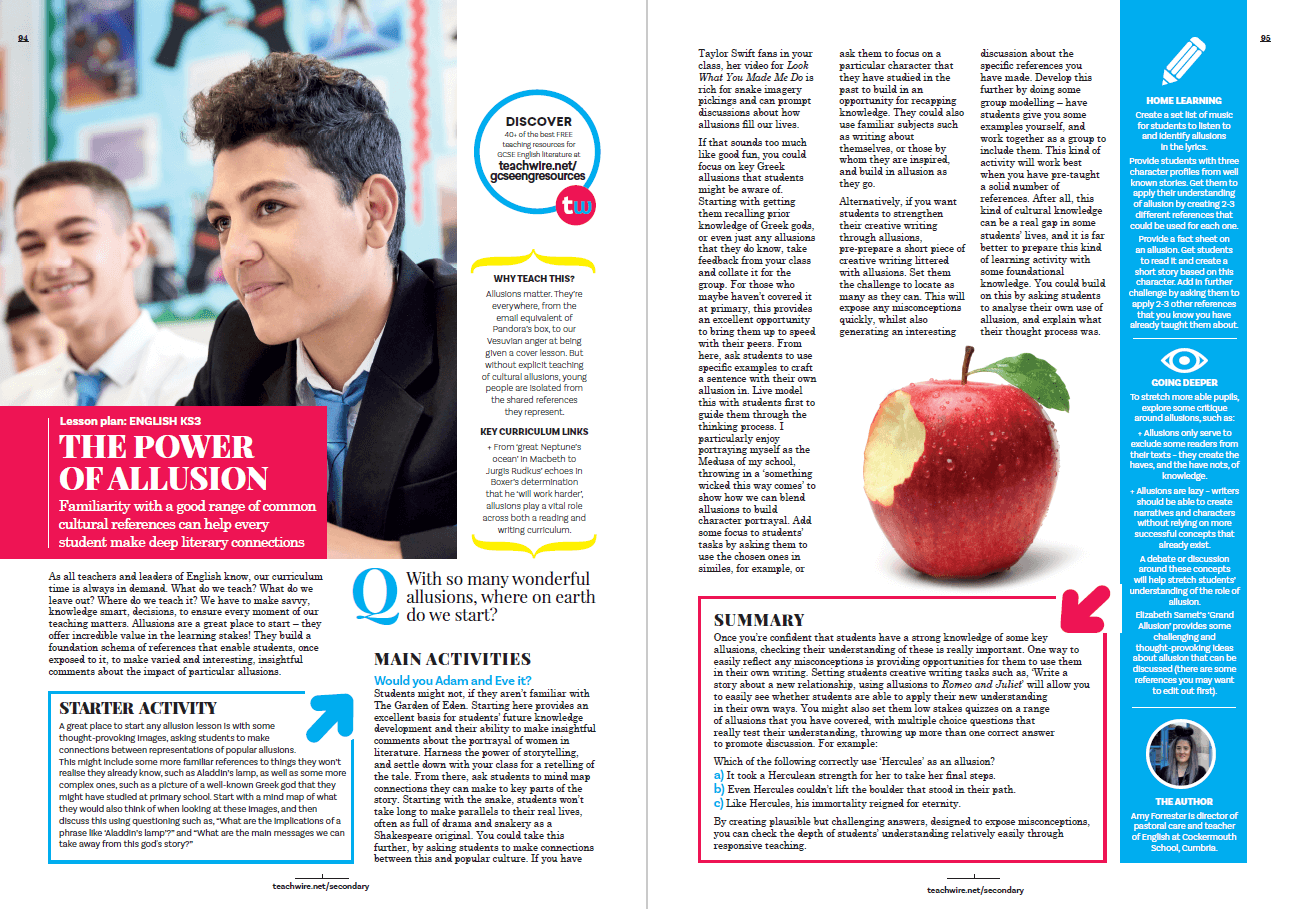Familiarity with a good range of common cultural references can help every student make deep literary connections…
As all teachers and leaders of English know, our curriculum time is always in demand. What do we teach? What do we leave out? Where do we teach it?
We have to make savvy, knowledge smart, decisions, to ensure every moment of our teaching matters.
Allusions are a great place to start – they offer incredible value in the learning stakes!
They build a foundation schema of references that enable students, once exposed to it, to make varied and interesting, insightful comments about the impact of particular allusions.
Why teach this?
Allusions matter. They’re everywhere, from the email equivalent of Pandora’s box, to our Vesuvian anger at being given a cover lesson. But without explicit teaching of cultural allusions, young people are isolated from the shared references they represent.
Key curriculum links
- From ‘great Neptune’s ocean’ in Macbeth to Jurgis Rudkus’ echoes in Boxer’s determination that he ‘will work harder’, allusions play a vital role across both a reading and writing curriculum.
Find free Year 7 English worksheets here.

Similar resources
- Reading for pleasure activities – Games, challenges & lesson ideas
- Power and conflict poetry – Use war photos to make thematic links
- Worlds and Lives poetry anthology – Ultimate revision guide
- Essay writing – Complete guide for GCSE English Literature
- GCSE English creative writing – Practical guide for students












